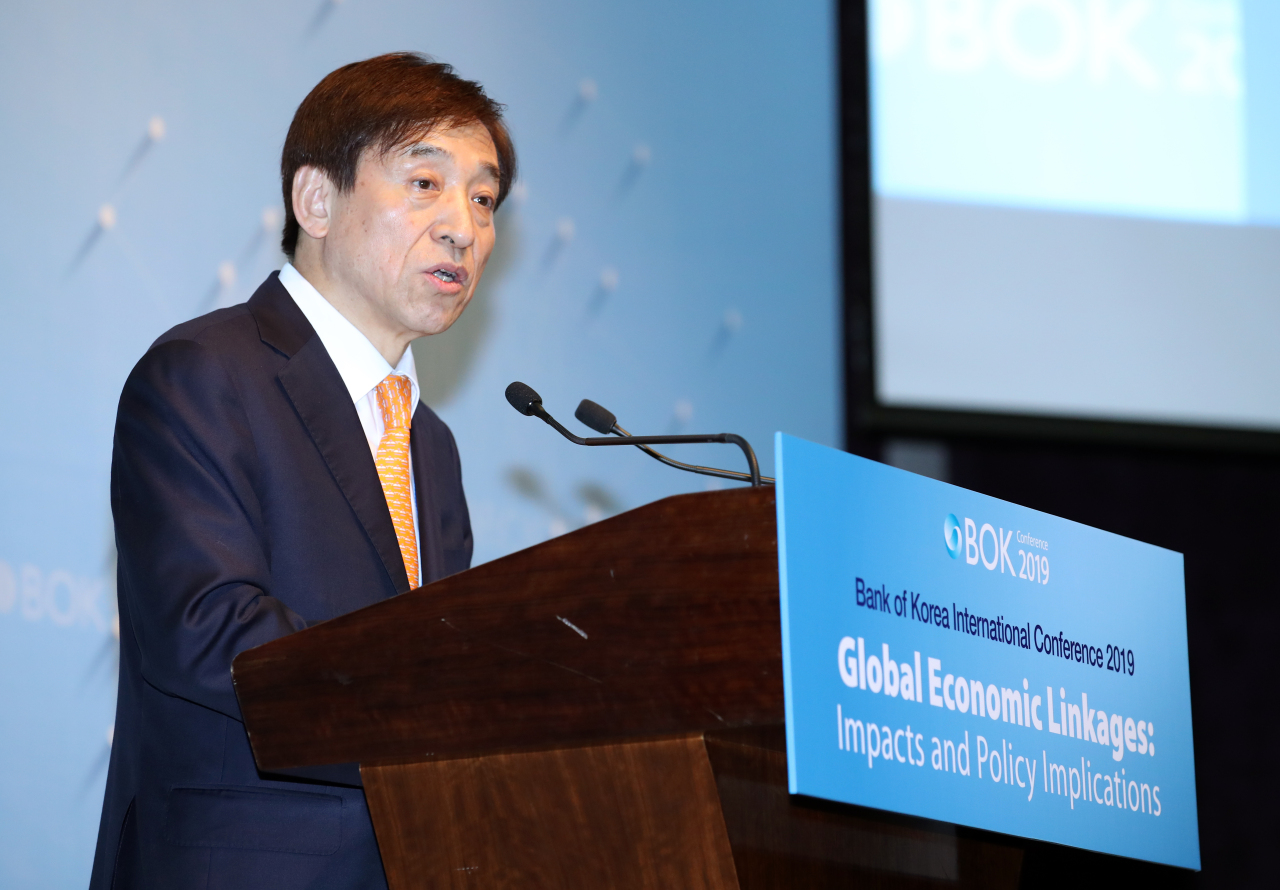The chief of South Korea’s central bank on Monday urged the nation to build economic resilience to external shock factors, amid the prolonged US-China trade conflict and its negative impact.
He also reiterated the need for structural reform to rev up the country’s growth potential and job creation capacity.
 |
BOK Gov. Lee Ju-yeol speaks Monday at the BOK’s conference on global economic linkages. (Bank of Korea) |
“Global economic linkages have been slowing lately due to the impact of the trade dispute (between Washington and Beijing),” said Lee Ju-yeol, governor of the Bank of Korea, during his opening speech at an international conference hosted by the BOK. The event was held at the Westin Chosun Seoul under the title “Global Economic Linkages: Impacts and Policy Implications.”
“Since the 1990s, the expansion of global trade and financial linkages has driven growth, enhanced production efficiency and increased investment and consumption opportunities across borders,” Lee said.
But the expansion was dampened by the global financial crisis in 2008 -- which weakened the global value chain and discouraged cross-border bank-lending activities -- and more recently, the recent trade conflict between the world’s two largest economies, he said.
As the growth of global linkages had offered people in emerging countries the opportunity to escape poverty and enjoy economic growth, the latest change may signal challenges in economic distribution, he added.
The central bank governor’s remarks came amid mounting concerns over the Washington-Beijing trade war, which has already been observed as influencing Korea’s trade-reliant economy.
Asia’s fourth-largest economy saw its monthly volume of outbound shipments decline in May for the sixth straight month. In April, the central bank readjusted its growth forecast for the country’s economy this year to 2.5 percent, down 0.1 percentage point from the previous figure.
As a top-priority policy task, Lee underlined that the domestic economy should first build resilience to external shocks.
“It is also crucial to carry out structural reform steadily, to boost our market’s growth potential and job creation capacity,” he said.
The BOK chief’s concerns -- about weaker linkages and the consequent impact on the resilience of individual economies -- came in line with Carmen Reinhart, a professor of the international financial system at Harvard Kennedy School and a keynote speaker at the BOK’s conference.
While developed economies increasingly face the risk of weakened policy resilience to external factors, emerging states, such as China, are weighed down by excessive debt, according to the scholar.
By Bae Hyun-jung (
tellme@heraldcorp.com)







![[Today’s K-pop] Blackpink’s Jennie, Lisa invited to Coachella as solo acts](http://res.heraldm.com/phpwas/restmb_idxmake.php?idx=644&simg=/content/image/2024/11/21/20241121050099_0.jpg)
